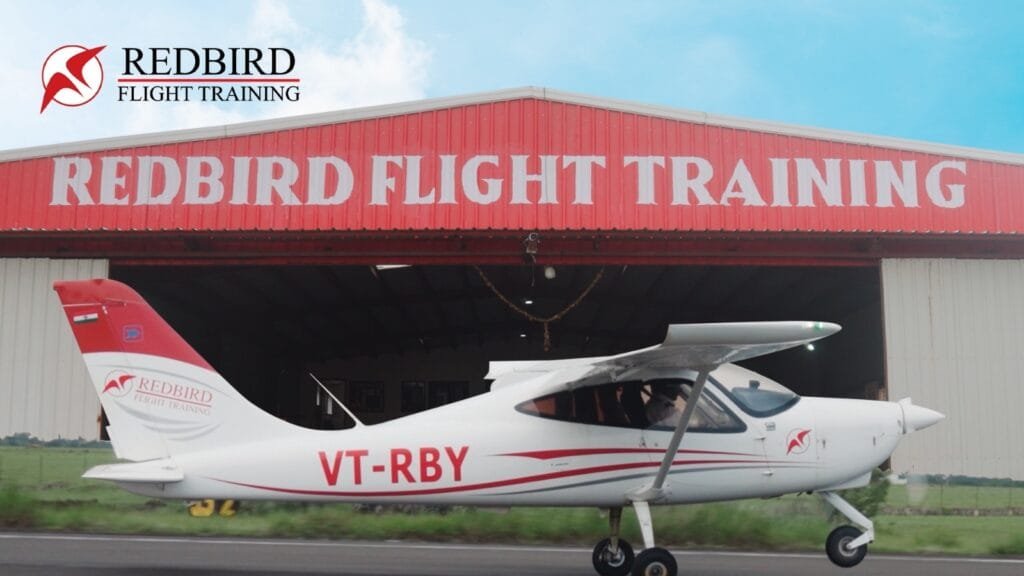
When people think of flight training schools, they often picture roaring engines, gleaming aircraft, and students perfecting takeoffs and landings. But the truth is, the journey to becoming a pilot extends far beyond the cockpit. The best flight training schools focus not only on teaching technical flying skills but also on developing character, leadership, emotional intelligence, and adaptability—qualities that define great aviators.
Today, we will take you inside what truly goes on beyond the flying lessons—how modern flight training schools nurture complete professionals ready to thrive in a demanding and ever-evolving industry.
Building a Foundation Beyond Technical Skills
Flying an aircraft is a blend of science, skill, and self-discipline. While handling controls and reading instruments are central to flight training, the real test of a pilot begins when things don’t go as planned. Turbulence, unpredictable weather, and equipment malfunctions—these challenges require composure, judgment, and teamwork.
Flight training schools prepare students for these real-world pressures by embedding mental conditioning and stress management sessions into their curriculum. Instructors simulate high-pressure situations in the classroom and on simulators, teaching students how to stay calm, assess risk, and make quick, rational decisions.
In doing so, they cultivate pilots who can handle not just aircraft, but responsibility.
Mentorship That Shapes Careers
One of the most valuable things flight training schools offer is mentorship. A good school doesn’t just train; it guides. Instructors often become lifelong mentors—sharing insights about the aviation industry, offering career advice, and helping students make informed decisions about their next steps.
Many trainees struggle with questions like:
- Should I pursue a type rating immediately after getting my CPL?
- Which airlines are currently hiring cadet pilots?
- What’s the best way to build flying hours efficiently?
Mentorship bridges the gap between technical learning and professional readiness. The best flight training schools encourage open conversations, helping students find the answers that align with their personal goals and financial plans.
Teamwork and Communication: The Core of Aviation
Flying might look like a solo activity from the outside, but it’s anything but that. Every flight is a team effort involving pilots, air traffic controllers, maintenance crews, and dispatchers. That’s why flight training schools place strong emphasis on communication and collaboration.
During flight training, students learn crew resource management (CRM)—a critical component of aviation safety that focuses on teamwork, leadership, and decision-making in multi-crew environments. Through role-play, group exercises, and simulator sessions, students experience the importance of clear communication and mutual trust.
This training prepares them for real-world airline operations, where effective communication can make the difference between routine flights and crisis management.
Professionalism and Ethics in Every Aspect
Every pilot represents the values of professionalism and integrity. Flight training schools understand that a strong ethical foundation is as essential as aeronautical knowledge. From day one, students are taught the importance of punctuality, adherence to checklists, honesty in reporting, and respect for safety protocols.
Many schools conduct regular briefings where students analyze real aviation incidents—not to assign blame, but to learn accountability and responsibility. This focus on ethics ensures that graduates enter the aviation industry not just as licensed pilots, but as professionals trusted with lives and high-value assets.
Physical and Mental Wellness Support
The path to becoming a pilot is demanding, both mentally and physically. Flight training schools recognize that student performance in the cockpit is deeply connected to their overall well-being.
Institutes today are integrating wellness programs that include physical fitness sessions, mindfulness practices, and counseling support. Students are encouraged to maintain sleep routines, balanced diets, and mental clarity—habits that directly influence alertness and safety during flights.
These efforts reinforce a vital truth in aviation: a healthy pilot is a safe pilot.
Exposure to Real-World Aviation Environments
To help trainees understand how the industry functions, flight training schools often organize visits to air traffic control towers, maintenance hangars, and airline operations centers. These visits give students a close look at the larger ecosystem they’ll soon be part of.
Some flight training schools go further by inviting airline captains, flight examiners, and aviation recruiters to conduct interactive seminars. These sessions expose students to the professional expectations and evolving standards of global aviation.
This kind of practical exposure builds not only confidence but also clarity—students see firsthand how their classroom lessons translate into real-world aviation operations.
Career Placement and Industry Connections
The journey doesn’t end with earning a Commercial Pilot License. For many, the biggest challenge begins after flight training—finding opportunities to build hours, secure a type rating, or get hired by an airline.
Top flight training schools assist students with post-training pathways. They provide career counseling, conduct mock interviews, and connect graduates with partner airlines, cargo operators, or charter companies.
By maintaining close industry ties, these schools act as a bridge between training and employment. In an industry where networking can open doors, this support is invaluable.
Character Development: Turning Learners into Leaders
Great pilots are defined by calmness under pressure, humility in success, and discipline in every task. These qualities are not taught in textbooks—they’re built through consistent exposure to real responsibility.
Instructors at flight training schools push students to reflect on their mistakes, learn from debriefs, and grow through self-assessment. Whether it’s accepting feedback, taking ownership of errors, or assisting peers, every lesson adds to a pilot’s personal growth.
This character-building process ensures that graduates are not only skilled aviators but also future captains, trainers, and leaders who inspire confidence in others.
Beyond the Cockpit with Redbird Aviation
Mastering the controls is just the beginning at Redbird Aviation. With state-of-the-art simulators, expert instructors, and a structured curriculum, Redbird prepares every trainee to face the real world of aviation with confidence, precision, and purpose.
Beyond the aircraft, Redbird focuses on mentorship, discipline, and professional growth—helping you not only earn your license but build a career that soars. Whether you’re just starting your flight training journey or looking to advance your skills, Redbird Aviation gives you the edge to fly higher, smarter, and stronger.

